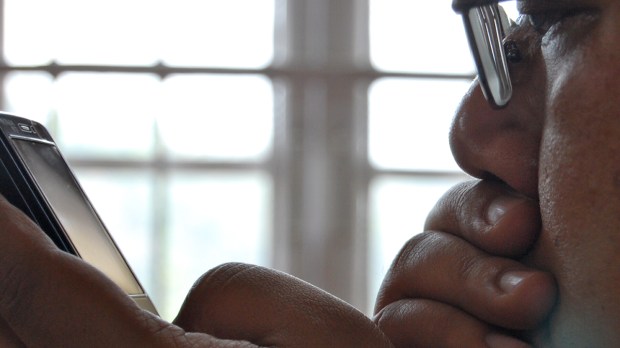If you’d like to share this article on social media, we’d like to encourage you and thank you.
But if you are someone who can’t pull yourself away from your digital device, read on.
The American Psychological Association says that Americans’ stress levels are way up, and that may be due in large measure to their increased use of digital technology and social media.
The APA has conducted a survey of Americans in regards to stress for the past 10 years, and this year, the survey notes a significant rise in the stress level. The organization notes in a February 23 report that social media use has skyrocketed from 7 percent of American adults in 2005 to 65 percent in 2015. For those in the 18-29 age range, social media use is at 90 percent.
Social media use is not all that’s stressing us out, however. A companion survey found a significant source of stress coming from politics (who could forget the 2016 presidential race?). In some ways, the two stressors are interacting, as much of the public discussion about everything, including politics, takes place on social media.
“In January, 57 percent of respondents of all political stripes said the U.S. political climate was a very or somewhat significant source of stress, up from 52 percent who said the same thing in August,” Bloomberg reported.
What appears most troubling is the number of people who cannot seem to tear themselves away from social media and digital technology. Forty-three percent of Americans say they are checking their emails, texts, or social media accounts constantly.
There’s even a new name for such people. As the survey notes:
More than a decade after the emergence of smartphones, Facebook and Twitter, a profile is emerging of the “constant checker” — those who constantly check their emails, texts or social media accounts (43 percent of Americans). This attachment to devices and the constant use of technology is associated with higher stress levels for these Americans. Generally, nearly one-fifth of Americans (18 percent) identify the use of technology as a very or somewhat significant source of stress. The most stressful aspect? Americans say technology causes the most stress when it doesn’t work (20 percent). … For constant checkers, stress runs higher than for those who do not engage with technology as frequently. On a 10-point scale, where 1 is “little or no stress” and 10 is “a great deal of stress,” the average reported overall stress level of constant checkers is 5.3. For non-constant checkers, the average reported stress level is 4.4. Constant checkers also reported a higher average level of stress related to technology during the past month than their non-constant checking peers (3.0 vs. 2.5, respectively). Among employed Americans who check their work email constantly on non-workdays, their reported overall stress level is 6.0.
It may come as no surprise that family time is suffering because of the increased use of technology/social media. Thirty-five percent of “constant checkers” say they are less likely to spend time with family and friends because of social media:
Constant checkers express feeling disconnected from their family, even when they are together, as a result of technology (44 percent of constant checkers versus 25 percent of non-constant checkers). In addition to feeling disconnected, more than one-third (35 percent) of constant checkers report being less likely to meet with family and friends in person because of social media. In comparison, half as many (15 percent) non-constant checkers report the same.
Americans apparently are realizing what’s happening to them. Some 65 percent of respondents said “unplugging” or taking a “digital detox” is important. And families are setting limits–or trying to: not allowing cell phones at the dinner table, for example, and turning off notifications for social media apps.
Trying to set boundaries brings its own stress for parents, however:
While 94 percent of parents say that they take at least one action to manage their child’s technology usage during the school year, such as not allowing cell phones at the dinner table (32 percent) or limiting screen time before bed (32 percent), almost half (48 percent) say that regulating their child’s screen time is a constant battle, and more than half of parents (58 percent) report feeling like their child is attached to their phone or tablet.

